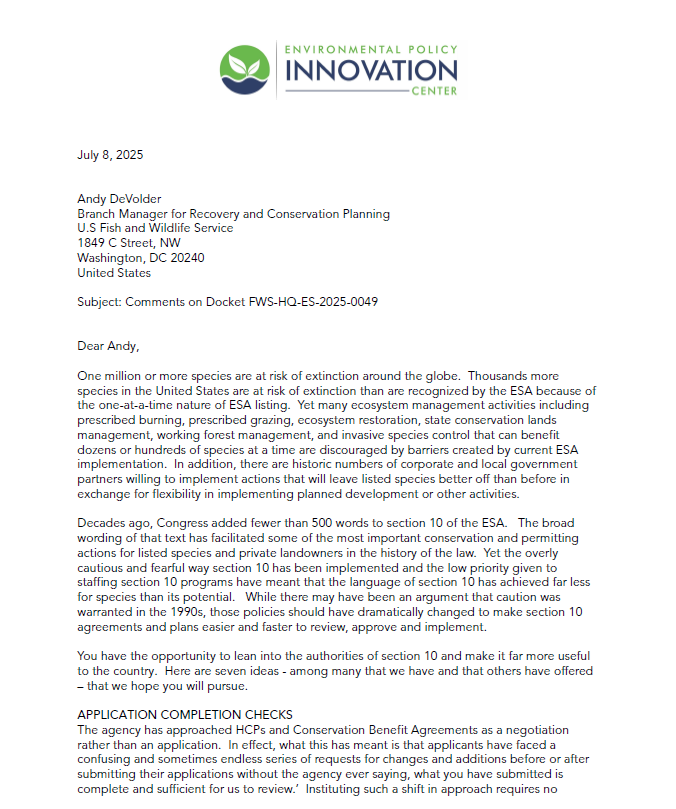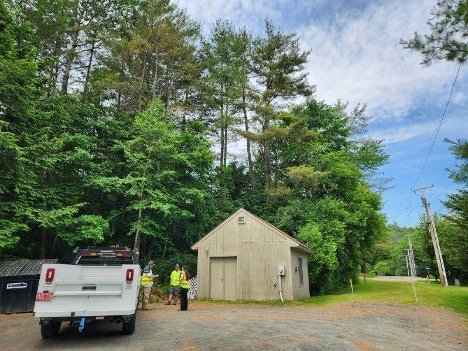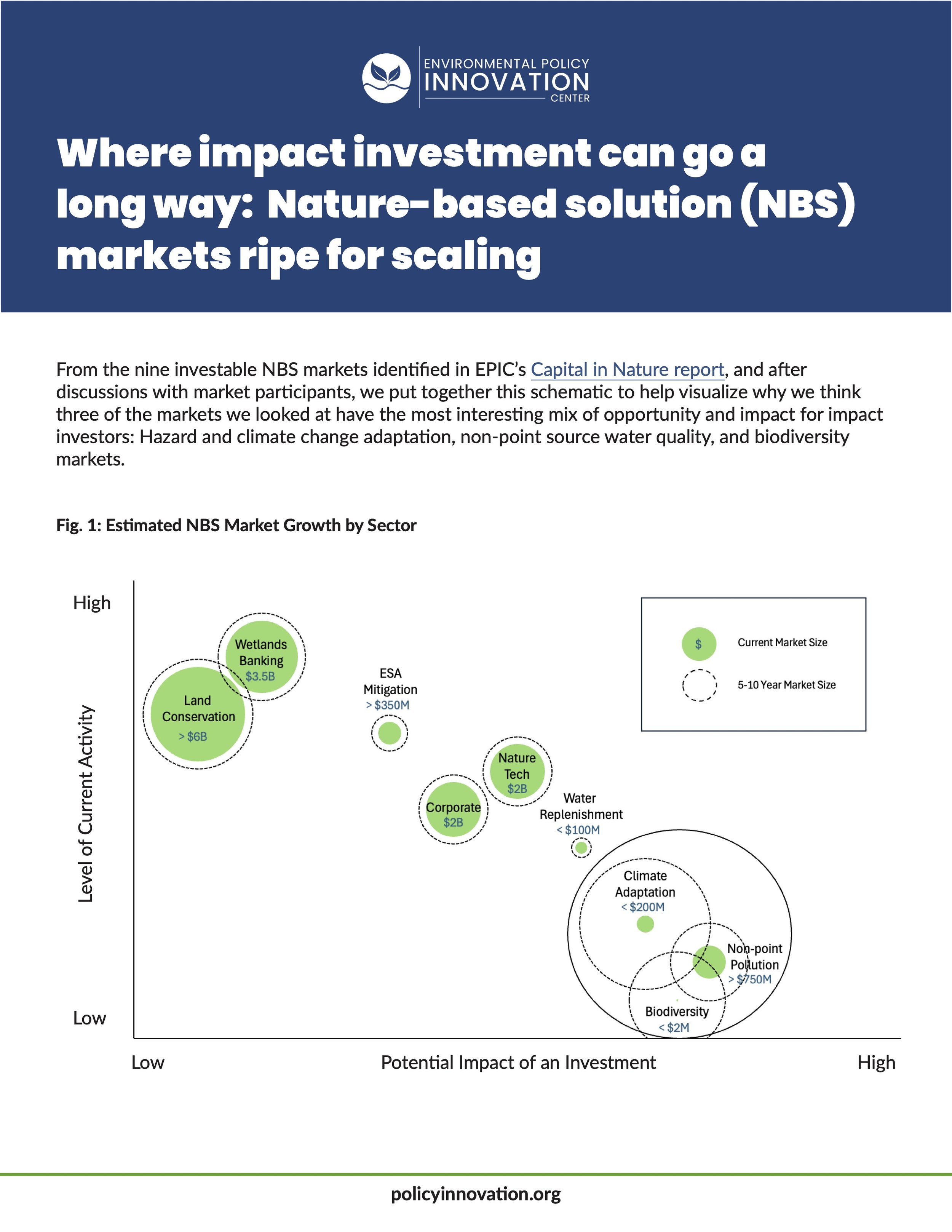Discover More

Comment Letter: Input for RFI on ESA Section 10 Conservation Benefit Agreements, Habitat Conservation Plans
Comments on “Endangered Species Act (ESA) Section 10(a) Program Implementation; Development of Conservation Benefit Agreements and Habitat Conservation Plans, and Issuance of Associated Enhancement of Survival and Incidental Take Permits” (FWS-HQ-ES-2025-0049-0001)

How effective governance can streamline restoration efforts—Louisiana CPRA Case Study

Digitizing the Past to Protect the Future: How Hopeworks Helped Hartford, VT Tackle Lead in Drinking Water

Project Update: National Drinking Water Explorer Tool

No Amount of Lead is Safe: Lead Innovation Hub Roadmaps Drive Toxic Service Line Replacement Faster, Fully, and Forever

RIBITS User Survey Reveals Desire for Data Reliability and Modernization

NEPA, CEQA and the winds of change

Four Ways to Help Ensure Your Restoration Project is Investment-Ready: Insights from Maycomb Capital
Discover how small environmental restoration firms can scale their impact and earn revenue through outcomes-based funding like Pay for Success (PFS) contracts. In our latest feature, we talk with Maycomb Capital—a women-owned impact investing firm—about how they use flexible, mission-aligned financing to support projects that deliver measurable results for underserved communities. Learn what funders look for and how to secure the capital you need to launch your next high-impact initiative.

A Look At CEQ’s New CE Explorer
On June 5th, the CEQ’s Permitting Innovation Center released their first prototype experiment, the Categorical Exclusion Explorer. The Explorer is the first time a collection of cross-agency Categorical Exclusions (CEs) has been transformed into data for experimentation. This is still in the experimental stage, and we applaud the Permitting Innovation Center for releasing early-stage products and experiments. Early and iterative releases are ideal for gathering feedback and improving future releases.
We’ve discussed using existing environmental review data management and sharing as an area ripe for experimentation and innovation.

Trellis: Why Norfolk Southern restored a 1,500-foot stretch of Virginia shoreline

New Interactive Tools and Data to Explore Mitigation Bank Timelines

Comments on NAICS Revisions for 2027 - Proposing New Codes for the Ecological Restoration Industry
Comments on “2022 North American Industry Classification System (NAICS) - Revisions for 2027” (Docket ID USBC-2024-0032)

Types of Capital in US Nature-Based Solution (NBS) Markets

Where impact investment can go a long way: Nature-based solution (NBS) markets ripe for scaling
Preview: Drinking Water State Revolving Fund Funding Tracker—Already Making an Impact

Four Ways Philanthropy Can Accelerate Nature-Based Solutions

The ESA Edit That Could Affect an $800 Million Species Offset Market and Undermine Decades of Tribal Salmon Recovery
Last month, EPIC submitted detailed public comments opposing a proposed federal rule that would weaken the Endangered Species Act by removing habitat destruction from the definition of "harm." If the Rule goes through, it has profound implications for the restoration economy and Tribal communities.

Comment: Opposition to the Proposed Rule to Rescind the Definition of "Harm" Under the Endangered Species Act
Comment: Opposition to the Proposed Rule to Rescind the Definition of "Harm" Under the Endangered Species Act

California’s restoration bottleneck deepens biodiversity debt


